New Editorial Board Members
Being a Fulbright Alumni is about nurturing our experience abroad and giving back from what we experienced and accomplished. It is that spirit that made us take a new challenge as new members of the Fulbright Chronicles editorial team. We would like to introduce ourselves to our readers while sharing the goals we aim for the Journal’s future.
As “giving back” has always been the mantra of any Fulbright journey, we are now humbled to be part of the Fulbright Chronicles as new members of its editorial team. Mirroring the spirit of the Fulbright Program, we merged our diverse backgrounds to cover contemporary issues and enhance cross-cultural understanding. Being a unique forum for Fulbrighters, this journal embraces an independent and open access journal to share how the Fulbright Program advances global knowledge and change lives. And it certainly has changed ours!
We come from different academic backgrounds, but are all tackling current global issues across our different areas. From mental health and motivation studies of Narun to the study of neglected diseases by Fidel, we have stressed the importance of interdisciplinary collaboration in moving forwards often overlooked partnerships. This is clear in how Aicha shows that different disciplines can come together to develop more affordable housing through community design that tackles climate change, and how María created new teaching methodologies that help students learn better via visual thinking. And all of our endeavors aim to change public policies and understanding of science, as José does in using computer models to predict science-based legislations and how Steven has done by teaching linguistics and technical writing about the language of science around the world.
And all these valuable skills and experiences have one thing in common. Our Fulbright experience opened up so many opportunities in all our research fields that we cannot stress enough how it can change lives. It is our gratitude that made us take this new challenge of being Associate Editors of the Fulbright Chronicles. In that role, we want to give voice to the experiences of all fellow alumni, introduce novel research topics for students and scholars, and ultimately share how such valuable experiences create enduring professional and personal development. It is by “giving back” that we can foster and grow this multi-cultural Fulbright family that we have the privilege to be part of.
Thank you!
Aicha Lakhssass
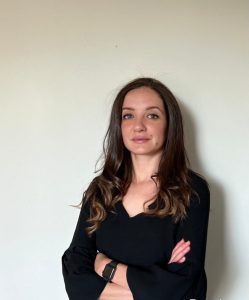
Associate Editor
Aicha was a Fulbright Scholar to the United-States (2016-2018) at the University of Texas at Austin. She pursued a Masters of Science in Community and Regional Planning, where she focused mainly on topics related to affordable housing, community design, and transit-oriented development. Her final project analyses the historic framework of affordable housing in her hometown in Morocco and how its location as to services and employment plays an important role in determining the quality of life of citizens. Aicha works today as a project manager in urban planning and design and is interested in continuing work for the betterment of communities, particularly those built around transit, that have access to equitable opportunities and that prosper in well-designed urban environments. Through her projects, her ultimate goal is to participate in the mitigation of climate change through quality design that leads to behavioral changes, such as mode shift from cars, one of the biggest contributors to greenhouse gas emissions, to more sustainable transportation modes.
Fidel de la Cruz Hernández Hernández
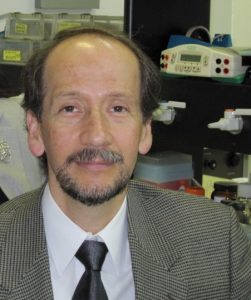
Associate Editor
Fidel was a Fulbright Invited Scholar (2017-2018) at Biochemistry and Molecular Biology Department (University of California Irvine, USA) doing research at the Dr. Anthony James laboratory. He earned a Ph.D. in Molecular Biology and has a M.Sc. degree in Genetics at Center for Research and Advanced Studies at Polytechnic Institute (CINVESTAV), Mexico. He attended specialized courses in Molecular Parasitology at the Marine Biological Laboratory at Woods Hole, MaA and the Biology of Disease Vectors (Arthropods that transmit diseases) at Colorado State University. Currently, he is Professor at Infectomics and Molecular Pathogenesis Department at CINVESTAV (México). He collaborates in research and academic projects with the National Institutes of Health of México and Simon Bolivar University, México. Currently, he is conducting a research group with under- and graduate- students with the aim to study “Neglected diseases,” discover mechanisms of immunology of mosquitoes and better understand their relationship with pathogens they transmit (such as malaria and Dengue). In addition, the group is investigating the basic biology of the prickly pear cochineal, the insect producer of carmine, pigment discovered by pre-Columbian cultures in America and that is used, even today for stain used in many products, including foods, fabrics, drugs, etc.
José Caetano
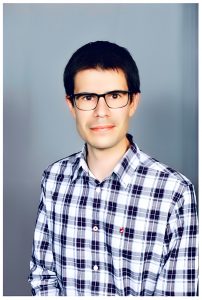
Associate Editor
José is a Portuguese chemist, historian and philosopher of science. He was a Fulbright Research Scholar at the University of California, Irvine, in 2022. He worked with Professor Cailin O’Connor on the dynamics of scientific knowledge and how it moves through scientists, the public and policymakers, on emerging science-based legislation. His work includes building computer-based epistemic models to predict future science-based discovery outcomes and exploring the explanatory power of scientific endeavors. José is currently a researcher on the MIT Portugal Program at the LAQV-REQUIMTE Lab – University of Porto (Portugal) developing Data Science and Artificial Intelligence methods towards chemical property and reaction predictions. He collaborates as a Visiting Researcher at the Institute of Contemporary History – University of Évora (Portugal), working on chemistry’s role in the emergence of science-based regulations and how it can help understand ongoing issues on fake-science and misinformation. José has also authored several peer-reviewed publications and research communications on the interdisciplinary scope of the history of science, student engagement, and science communication. Through the years, José has received several research grants and serves at various scientific organizations such as the “Portuguese Chemistry Society”, the “International Younger Chemists Network” and the “European Society for the History of Science”.
María López de Bayas Alcántara
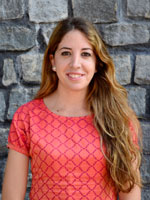
Associate Editor
María López de Bayas Alcántara is from Spain and she was a Fulbright scholar during the academic year of 2022-2023 at Mott Community College (MCC), Flint, Michigan (USA). At MCC’s International Office, her Fulbright program was designed to achieve the following objectives: to promote the Erasmus plus program which is sponsored by the European Union (EU) to support education, training, youth and sport; to develop partnership exchange mobility programs with worldwide universities for students and faculty and; to share all kinds of international opportunities abroad, such as (summer programs, internships, jobs, scholarships, etc). María also worked as a teacher and college counselor at schools and universities in the United Kingdom, Germany, India, and Spain and was selected as an education ambassador at the program Ship World Youth, in Japan. While she was a teacher in Spain, she developed a teaching methodology called “Drawing concepts. How to avoid studying, puking and forgetting, the solution via visual thinking.” This methodology allowed her students to excel at the philosophy university entry exam and obtain some of the highest scores in Spain. Her teaching methodology can be applied to any field. Currently, she is the Head of International Partnerships at Erasmus in School. This organization acts as a remote International Office to give support to admission centers within universities with the target of multiplying their number of enrolled international students.
Narun Pat
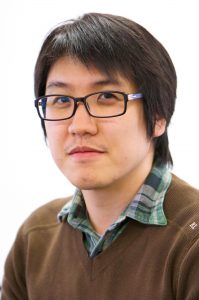
Associate Editor
Originally from Thailand, Narun was a Fulbright graduate scholar in 2009-11, as part of his PhD in Brain Behavior and Cognition at Northwestern University. During his PhD, he studied mental health and motivation, using human cognitive neuroscience techniques, such as functional Magnetic Resonance Imaging (fMRI) and electroencephalogram (EEG). He then studied decision-making and the brain, in the field known as neuroeconomics, during his first post-doctoral position at the National University of Singapore. Later, he worked on big data in neuroimaging and psychiatry as a research fellow at the US National Institute of Mental Health, Bethesda MD. Since 2019, he has been a principal investigator at the Department of Psychology, University of Otago, in Dunedin, New Zealand. His laboratory focuses on the brain bases of individual differences in cognition, emotion and motivation. His group employs cognitive neuroscience methods (such as fMRI, EEG and polygenic scores) along with modern data science tools (such as big data, machine learning and computational modelling). His research has been supported by the Health Research Council of New Zealand, Oakley Mental Health Research Foundation, Otago Medical Research Foundation and the University of Otago.
Steven Darian
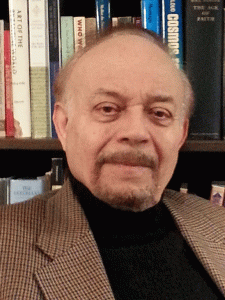
Associate Editor
Steven has taught at the University of Pennsylvania, Columbia and is professor emeritus of Linguistics and Education at Rutgers University. He has had three Fulbrights; to India, Uzbekistan, and Ukraine. In India, he taught Technical Writing at the Indian Institute of Technology (IIT) New Delhi. In Uzbekistan, he taught Management at the Tashkent Financial Institute and prepared a textbook. In Ukraine, he taught English for Management at the Institute of Linguistics & Management, as well as creative writing at Shevchenko University. Darian has lived and worked and studied in six other countries. He is currently Editorial Director for a small publishing house in NY and has edited over a hundred book manuscripts. He has written more than a dozen books, in every genre. In addition to a travel book about the Ganges River and a historical novel set in Samarkand in the time of Tamerlane, these books include: The China Business Reader, Understanding the Language of Science, The Role of Religion in Just About Everything, Technique in Nonfiction, The Illuminator, and The Wanderer: Travels & Adventures Beyond the Pale.
Notes
More information on the new members of the Editorial Board can be found in the Fulbright Chronicles’ webpage at: https://fulbright-chronicles.com/editorial-board/
